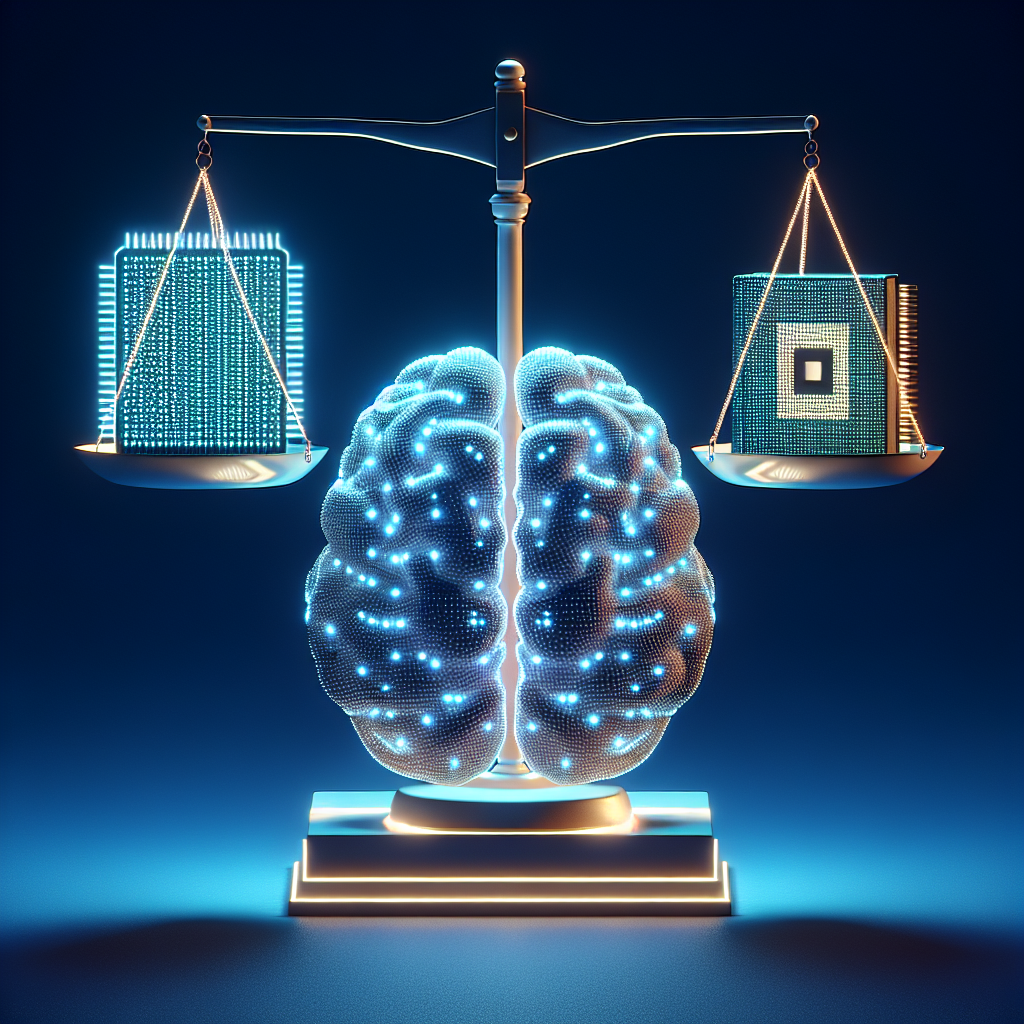Artificial Intelligence (AI) has revolutionized the way we live, work, and interact with the world around us. From virtual assistants like Siri and Alexa to self-driving cars and advanced healthcare technologies, AI has the potential to transform industries and improve the quality of our lives. However, with great power comes great responsibility, and the ethical implications of AI innovation must be carefully considered.
The Role of Ethics in AI Innovation
Ethics play a crucial role in AI innovation as it has the power to shape the impact of AI on society. Ethical considerations ensure that AI systems are developed and used in a way that is fair, transparent, and responsible. Here are some key aspects of ethics in AI innovation:
1. Fairness and Bias: One of the biggest challenges in AI is ensuring that algorithms are fair and unbiased. AI systems are trained on data, and if the data is biased, the AI system will replicate and potentially amplify that bias. It is important for developers to be aware of biases in data and algorithms and take steps to address them to ensure fair outcomes for all users.
2. Transparency: Transparency is essential in AI systems to build trust and accountability. Users should have a clear understanding of how AI systems make decisions and why they make those decisions. Transparent AI systems also allow for easier auditing and oversight, which can help identify and address potential ethical issues.
3. Privacy and Data Security: AI systems often rely on large amounts of data to make accurate predictions and decisions. It is important to protect user privacy and ensure that data is handled securely. Developers should be transparent about how data is collected, used, and stored, and obtain user consent before collecting and using their data.
4. Accountability: AI systems should be designed in a way that ensures accountability for their decisions and actions. Developers should be held accountable for the ethical implications of their AI systems, and mechanisms should be in place to address any harm caused by AI systems.
5. Social Impact: AI has the potential to have a significant impact on society, including job displacement, inequality, and discrimination. Developers should consider the social implications of their AI systems and work to minimize negative impacts while maximizing positive outcomes for society as a whole.
FAQs
Q: How can developers ensure that AI systems are fair and unbiased?
A: Developers can ensure that AI systems are fair and unbiased by carefully selecting and curating training data, testing algorithms for bias, and implementing bias mitigation techniques. It is also important to regularly monitor and audit AI systems for bias and take corrective action when bias is detected.
Q: What are some examples of biased AI systems?
A: Examples of biased AI systems include facial recognition systems that perform poorly on certain demographic groups, predictive policing algorithms that disproportionately target minority communities, and hiring algorithms that favor candidates from certain backgrounds.
Q: How can AI systems be made more transparent?
A: AI systems can be made more transparent by providing explanations for their decisions, making source code and data publicly available, and allowing for external auditing and oversight. Transparent AI systems build trust and accountability, which are essential for ethical AI innovation.
Q: What are some best practices for handling user data in AI systems?
A: Best practices for handling user data in AI systems include obtaining user consent before collecting and using data, anonymizing and encrypting data to protect user privacy, and implementing data security measures to prevent unauthorized access. Developers should also be transparent about how data is collected, used, and stored.
Q: How can developers ensure accountability for the ethical implications of their AI systems?
A: Developers can ensure accountability for the ethical implications of their AI systems by implementing mechanisms for oversight, auditing, and redress. This can include creating ethical review boards, conducting regular ethical impact assessments, and establishing clear guidelines for responsible AI development and deployment.
In conclusion, ethics play a crucial role in AI innovation and must be carefully considered to ensure that AI systems are developed and used in a responsible and ethical manner. By addressing issues such as fairness, transparency, privacy, accountability, and social impact, developers can build AI systems that benefit society while minimizing harm. As AI continues to advance, it is essential for developers, policymakers, and the public to work together to ensure that AI innovation is guided by ethical principles and values.

